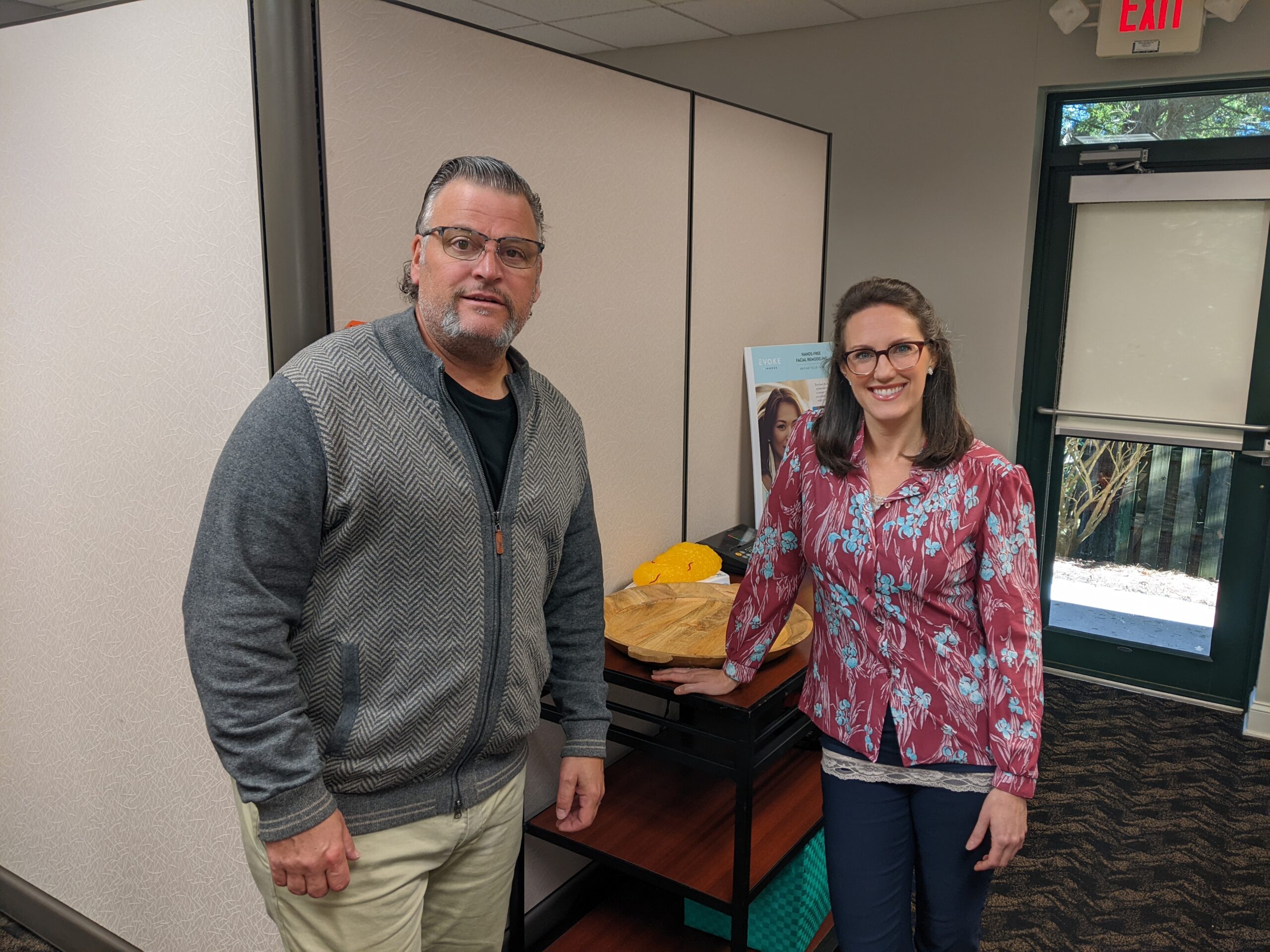
Welcome back to our first Ask Me Anything Live show for 2022. As per every episode, we’re giving away a $25.00 Target Gift Card to one lucky viewer.
Q: Is diet or exercise more important for weight loss?
A: This is a very popular question. While exercise and diet both play a key role in health, diet is key for weight loss! You cannot out-exercise a poor eating plan. But you can lose weight by eating healthy without exercise. Keep in mind that exercise will always have health benefits and we still encourage patients to partake in some form of exercise for that reason. Unless you’re doing excessive exercise for 8 – 10 hours a day or some kind of hard labor, you wouldn’t need to monitor your diet. But that’s simply not reality and the norm for most of us. Exercise is great for health, mobility, to shape the body, coordination, and balance but cannot be used in place of a healthy diet.
Exercise is extremely important and plays a bigger role in weight maintenance. So, until patients reach their maintenance weight goal, we focus more on diet to encourage weight loss.
Q: Does the keto diet require you to count calories? Or can I just eat until I’m full?
A: For any type of diet, we recommend patients eat when they’re hungry and stop eating when they are full. The foods that are eaten on a keto diet are very nutrient-dense, calories-dense, and full of fats and proteins. It’s actually quite difficult to overeat when you’re consuming the correct foods. For this reason, we recommend patients listen to internal cues and not track every single calorie.
If you are eating real foods that are high in nutrients, it has a way of controlling itself and you’ll stop eating when needed. Pay attention to satisfaction since your sense of fullness takes time, up to 20 minutes to catch up to you when eating. We encourage patients to slow down when eating and listen to their bodies for satisfaction versus eating until full or discomfort.
We specialize in finding the best eating plans and diets that fit every individual patient’s needs. We help patients learn how to eat until satiety, the differences between real foods versus processed foods, and even offer medications to help.
For some amazing keto recipes, visit Dr. Simonds’ Instagram page, The Casual Keto Doctor.
Tip: We recommend patients be mindful when eating packaged/processed foods even if they are made for the keto diet. These types of foods are easy to overeat and may cause a stall in weight loss or even cause weight gain. We recommend that they be used in moderation.
Q: I grew up during the low-fat diet craze and was taught that eating fat will make you fat. How much fat should I be eating for weight/fat loss?
A: This is such a common belief and we’re here to tell you that this is false! Eating naturally occurring fat is not bad for human beings and has never been considered bad by the medical community, until around the 1940s-1950s. This is due to some ill intentions that were promoted in the U.S. during that time, mainly due to commercial and government interests.
We don’t ever want patients to be concerned with eating too much naturally occurring or saturated fats from animals.
Remember, there’s a big difference in what we consider healthy fats. For example, the fat in the middle of an oreo is not a naturally occurring fat and is terrible for you. So, it’s important to be eating the right fats and stay away from refined carbohydrates. This type of eating has created a chronically ill community and the low-fat craze has certainly been responsible for this.
For patients that are hesitant to add fats into their diets, we always start slow. We may recommend eating full-fat dairy instead of low-fat. Or even recommend full-fat salad dressings over low-fat varieties. We don’t want to make big changes that make patients uncomfortable, so easing into it and incorporating healthy fats slowly over time is a great way to get started. Natural fat is not the enemy! Focus on eating naturally occurring animal fats.
Dr. Simonds will be speaking during a talk, Adapt Your Life on this very subject in the near future.
Q: What medications do you prescribe?
A: The FDA has approved a handful of medications for treating weight. We use those medications, as well as some for off-label use. We commonly prescribe older medications that have many years of safety data such as Phentermine. Phentermine is the number one prescribed weight loss medication in the U.S. and has been used safely for 63 years. We also commonly prescribe Metformin and some others.
There are other, newer medications on the market but we have found that they are expensive and have supply chain issues. While we have limited options in medications, we find them highly effective and extremely helpful. Medications are prescribed to meet individual needs and goals and are tailored for each patient.
Contact us if you have any questions or would like to schedule an appointment.
Q: I’m an emotional eater and know what to do but can’t seem to follow it, can you help?
A: Absolutely! We have so many folks in the practice that identifies with emotional eating. Emotional eating is something that every human has the potential to struggle with due to the addictive and highly processed foods being manufactured today. It’s so easy to eat when we’re happy, sad, stressed, or just because it’s there. We can definitely help by offering tools and support that can make a world of difference.
Q: How to curb late-night snacking?
A: This is something that we commonly address in the practice. Medications, planning, and distractions are the best tools for late-night snacking. What you eat early in the day can have a huge impact on late-night eating. It’s important to always break your fast with at least 30 grams of protein.
We find that patients that eat mindfully throughout the day will set the stage for blood sugar and craving control in the evening.
Q: I struggle with finding the time or having enough energy to exercise. What can I do?
A: There’s formal exercise and then there’s non-exercise activity thermogenesis (NEAT). It ranges from the energy expended walking to work, taking the stairs, parking further, or even getting up out of your chair several times a day.
All of these movements add up during the day and can make a big difference. Unlike formal exercise, you don’t have to go to the gym or block a period of time out of your day. We encourage patients to “sprinkle it in” and add a little bit of exercise throughout the day. Start by moving more and try to keep the body in motion. Add in a few squats while brushing your teeth or in between t.v. shows to incorporate more movement. Exercise doesn’t mean that it has to be so intense that you can’t talk, breathe or that you’re sweating profusely.
Q: Is there any truth that the keto diet can cause hair loss?
A: While any diet can cause hair loss, it is not specific to the keto diet. Rapid weight loss from any diet may cause temporary hair loss and the body has a way of correcting itself.



